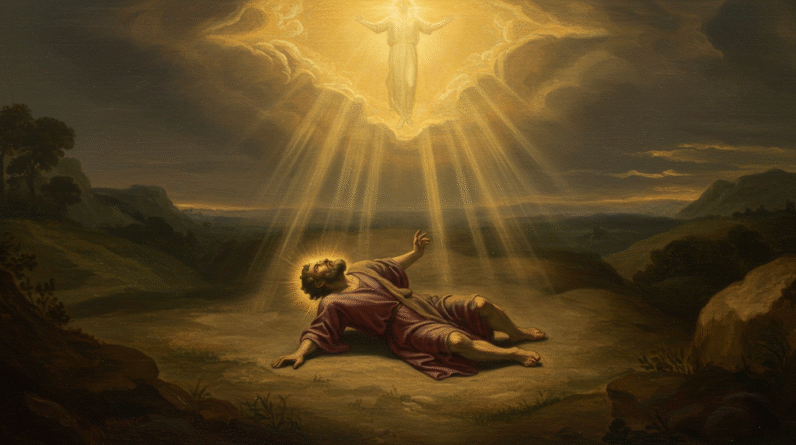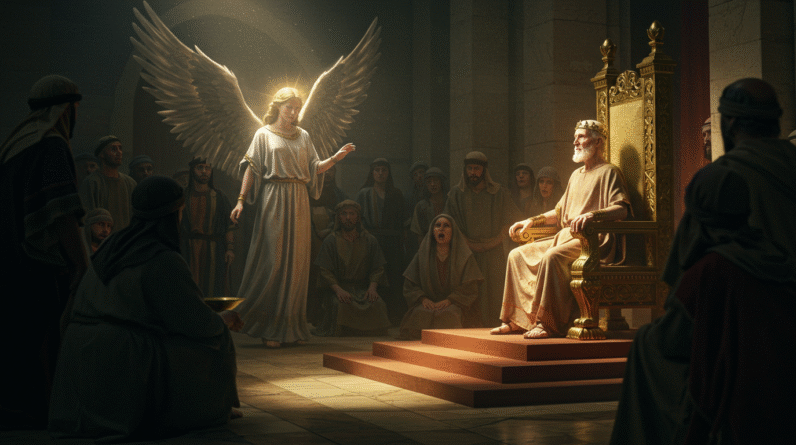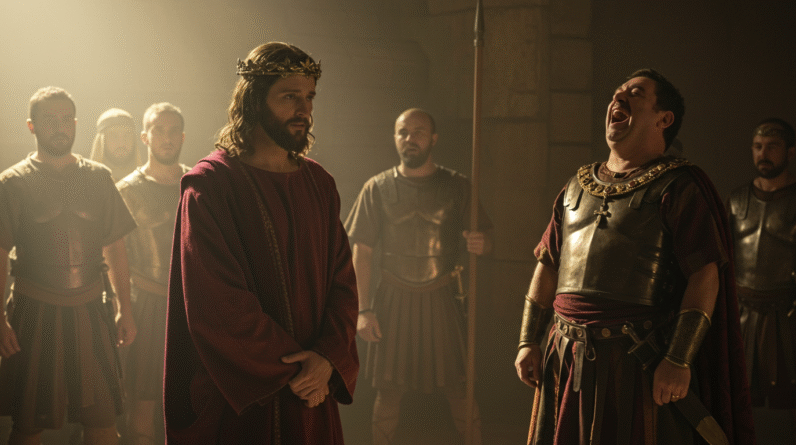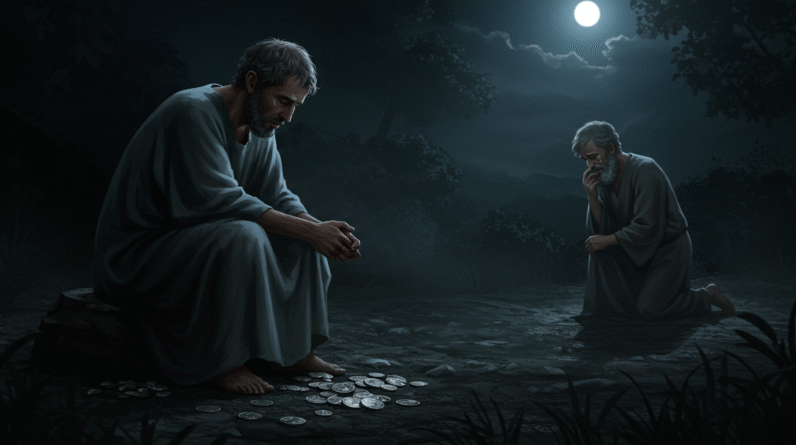Explore the tale of King Nebuchadnezzar’s clash with divine will in Daniel 3. Discover lessons of power, pride, and humility for modern spiritual reflection.
King Nebuchadnezzar and the Fiery Trial in Daniel 3
Nebuchadnezzar – The Enemy of God in the Old Testament
Introduction:
Ever wondered what happens when earthly power clashes with divine will? The story of King Nebuchadnezzar in the Old Testament provides a riveting exploration of this theme. Nebuchadnezzar, a man of unparalleled ambition, found himself repeatedly at odds with the God of Israel, thrusting him into the center of some of the Bible’s most dramatic narratives.
In this article, you’ll journey through the life and deeds of Nebuchadnezzar, focusing particularly on the fiery trial in Daniel 3. You’ll explore his opposition to God’s plans, the consequential divine judgments he faced, and what lessons his story imparts for modern-day spiritual reflection.

Who Was Nebuchadnezzar?
Nebuchadnezzar II, the renowned king of Babylon, was an enigmatic yet powerful figure. He ruled from around 605 to 562 BC, a period marked by Babylon’s transformation into a formidable empire. His reign is noted for vast architectural achievements, including the famed Hanging Gardens of Babylon. But his legacy is just as built on his towering ego and relentless pursuit of power, which often brought him into direct conflict with divine authority.
In the biblical context, Nebuchadnezzar’s name frequently emerges in stories illustrating the tension between human ambition and God’s sovereignty. His military campaigns, especially the conquest of Jerusalem and the subsequent Babylonian Exile of the Jews, cemented his significance within Old Testament narratives, symbolizing a potent opposition to God and His chosen people.
Nebuchadnezzar’s Opposition to God
Nebuchadnezzar’s motivations for opposing God were deeply rooted in pride, an attribute that would repeatedly lead him astray. He sought not only to expand his kingdom but to establish his own deific status among his subjects. His construction of a colossal golden statue, as outlined in Daniel 3, serves as a stark testament to this obsession with idolatry and self-glorification.
His decree that all must worship this statue showcases his brazen defiance. When three young Jewish men—Shadrach, Meshach, and Abednego—refused to bow down, citing their allegiance to God, Nebuchadnezzar’s fury boiled over. Daniel 3:14-18 captures this heated confrontation, vividly illustrating his determination to suppress any dissidence to his rule.
The Consequences of Nebuchadnezzar’s Opposition
Nebuchadnezzar’s defiance against divine order was not without repercussions. The very fire he intended to use as a punishment for the defiant trio instead became a stage for one of the Bible’s most miraculous interventions. God delivered Shadrach, Meshach, and Abednego unharmed, inciting awe and fear among Nebuchadnezzar and his subjects. Daniel 3:24-25 describes this supernatural deliverance, where a mysterious fourth figure, as radiant as a “son of the gods,” walked among them in the flames.
Immediate repentance followed this divine spectacle, leading Nebuchadnezzar to once more acknowledge the supremacy of the Hebrew God. However, this acknowledgment was ephemeral, as pride continually reasserted itself in his governance. The long-term consequences of his hubris unraveled in Daniel 4:31-33, where Nebuchadnezzar faced a humbling divine judgment that stripped him of his sanity and kingdom for a period.
Nebuchadnezzar in the Larger Biblical Narrative
In the broader biblical tapestry, Nebuchadnezzar’s interactions with figures like Daniel underscore his complex role. He teetered between adversarial and reverent towards God, reflecting a tension that defined his tumultuous reign. This narrative positioned him akin to other biblical figures whose decisions directly influenced the spiritual and political climates of their times, yet Nebuchadnezzar often stands out because he oscillates between resistance and submission.
Despite his opposition, Nebuchadnezzar inadvertently played a part in God’s redemptive plan. His dominion over the Israelites, while oppressive, also catalyzed certain spiritual transformations within the exiled Jewish community. These trials steeled their faith and ensured that God’s promises for restoration and salvation persevered even in captivity.
Lessons We Can Learn from Nebuchadnezzar
There’s profound wisdom to glean from Nebuchadnezzar’s fraught story. His life offers pointed spiritual insights into the perils of pride and the folly of idolizing earthly power over divine will. In Nebuchadnezzar, one sees the struggle of human ambition against divine purpose—a recurring theme within scripture that warns against self-exaltation. This resonates profoundly in our own lives where pride often clouds judgment and leads us away from spiritual truths.
Moreover, Nebuchadnezzar’s journey underscores the necessity for humility and repentance. His eventual declarations of faith, even if fleeting, illustrate the transformative power of divine encounters. So too can we transform our own lives by seeking truth and recognizing sovereignty in forces beyond our control.
Conclusion
King Nebuchadnezzar’s story is one of the most extraordinary accounts where earthly power met divine intervention. His defiance, downfall, and eventual return to reason epitomize a path paved with lessons on humility and the consequences of challenging divine order. Ultimately, Nebuchadnezzar invites modern readers to reflect upon our pursuits of power and pride, urging a realignment with spiritual truth and obedience.
Acknowledgment: All Bible verses referenced in this article were accessed via Bible Gateway (or Bible Hub).







